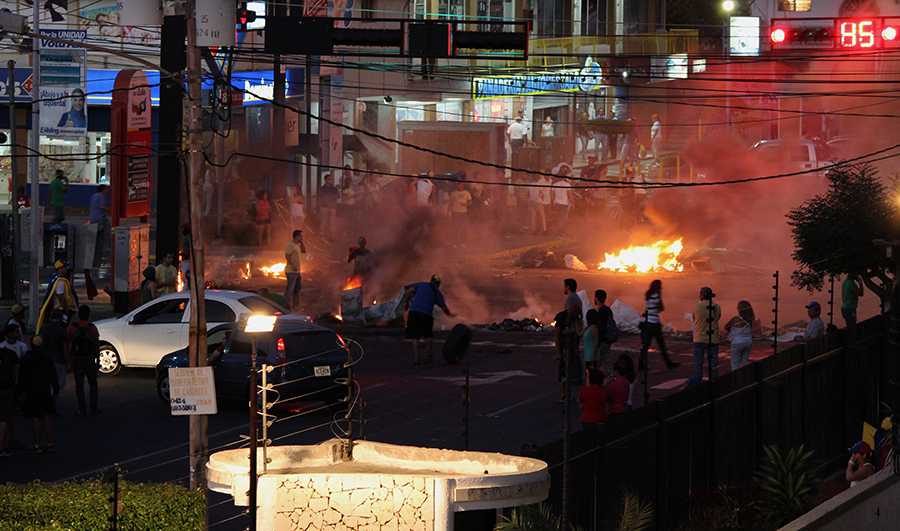Venezuelan Crisis
PHOTO | Wikimedia Commons
Fires burn in the Venezuelan capital of Caracas. Debris piles up on the sidelines of city roads, blocking traffic. The streets are filled with people chanting anti-government phrases, many of them students. Demonstrations in Venezuela have gone on since early February, and with the government not budging, have the potential to continue for weeks.
Venezuela and America have a complicated relationship, to say the least. When Venezuela was under the leadership of now-deceased dictator Hugo Chavez, tensions between the South American country and the United States were high. With the election of U.S. President Barack Obama, relations began to slightly improve. Obama sent a delegation to Chavez’s funeral and made the following statement regarding his death.
“At this challenging time of President Hugo Chavez’s passing, the United States reaffirms its support for the Venezuelan people and its interest in developing a constructive relationship with the Venezuelan government,” Obama said. “As Venezuela begins a new chapter in its history, the United States remains committed to policies that promote democratic principles, the rule of law, and respect for human rights.”
It’s an interesting statement considering Chavez’s political history. He persecuted Jews, was accused of conspiring with Al-Qaeda and the Taliban, and violated basic human rights in similar ways numerous times throughout his career. Obama’s politically correct comments reflect the conflict American leaders have between being strict defenders of all people worldwide and preserving the interests of their own nation.
Venezuela is a large provider of oil to America and other nations. Because of this, world leaders are hesitant to antagonize its leadership for fear of losing an oil supplier, even if they don’t agree with what is going on in the country. So far, there are 13 confirmed deaths due to the protests and 150 injuries. Although there is violence on both sides, the government has not been willing to discuss compromise with the opposition. America has been hesitant to comment and take a stand.
Although it is important to keep the well-being of the United States a top priority, that doesn’t excuse ignoring blatant human rights violations. Obama and the American diplomats need to defend the rights of all people, even if it means putting our relationship with the oil of Venezuela at risk.



